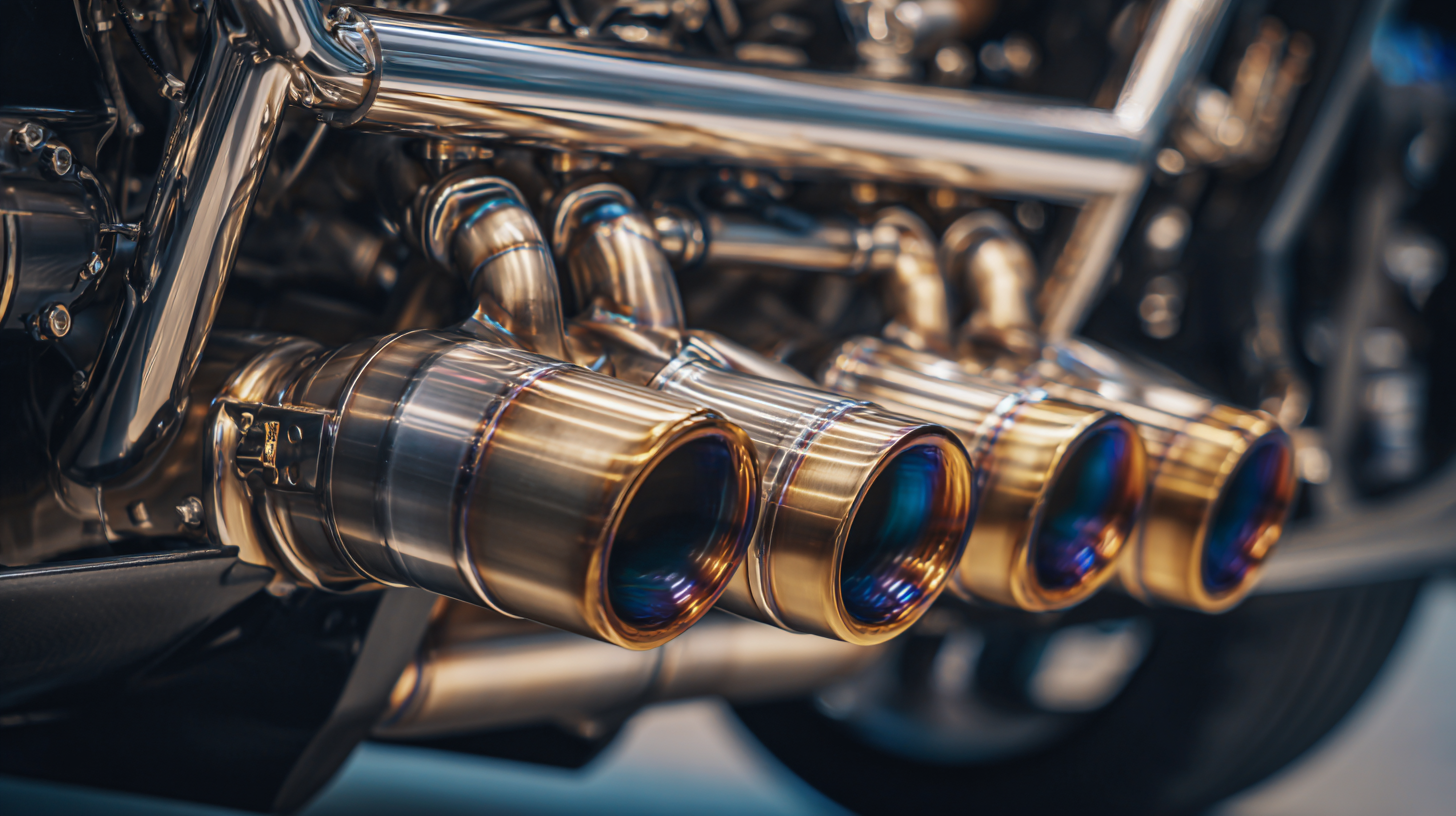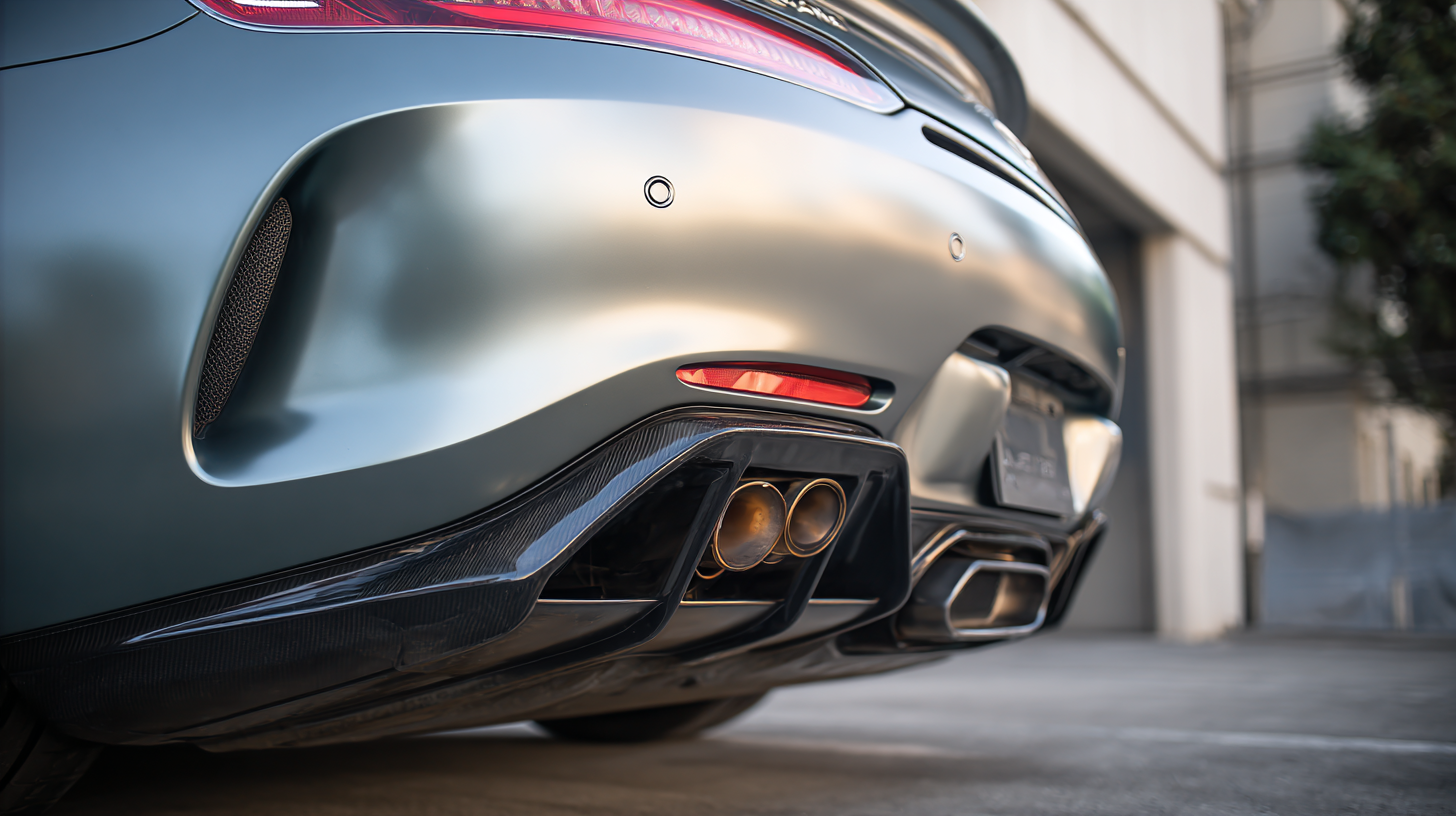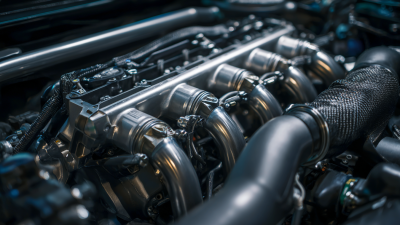How to Choose the Right Titanium Exhaust for Your Vehicle
Choosing the right Titanium Exhaust for your vehicle is a crucial decision for any car enthusiast looking to enhance performance and aesthetics. Titanium exhaust systems are renowned for their lightweight properties and superior strength compared to traditional materials like stainless steel.
According to a report by Market Research Future, the global automotive exhaust market, which includes titanium options, is projected to reach USD 32 billion by 2025, reflecting the increasing demand for lightweight and durable exhaust solutions. Additionally, a well-chosen Titanium Exhaust can lead to significant weight reduction—often around 50% compared to steel systems—resulting in improved handling and acceleration.
Moreover, its resistance to corrosion and high temperatures makes it an ideal choice for high-performance applications.
In this guide, we will explore the essential factors to consider in order to select the best Titanium Exhaust tailored to meet your vehicle’s specific needs.

Key Considerations When Selecting a Titanium Exhaust System for Your Vehicle
When selecting a titanium exhaust system for your vehicle, there are several key considerations that can greatly influence both performance and durability. First and foremost, evaluate the weight-to-strength ratio that titanium offers. Compared to traditional stainless steel exhausts, titanium is about 45% lighter, which can significantly enhance performance by reducing overall vehicle weight. According to a 2021 industry report from Automotive Engineering International, vehicles equipped with titanium exhaust systems can experience a weight reduction of approximately 15-20 pounds, leading to improved acceleration and fuel efficiency.

Another crucial factor is thermal resistance. Titanium excels in withstanding high temperatures, making it an ideal choice for performance vehicles that operate under extreme conditions. With a melting point over 1,600°C, titanium can handle the heat generated by high-performance engines better than most materials. A study from the The Society of Automotive Engineers found that exhaust systems made from titanium could retain performance characteristics even after prolonged use, unlike their steel counterparts, which are prone to aging and failure at elevated temperatures. When choosing the right titanium exhaust, ensure that it meets the thermal and performance demands specific to your vehicle's engine configuration.
Understanding the Benefits of Titanium Exhaust Systems Compared to Other Materials
When considering titanium exhaust systems for your vehicle, it's essential to understand the distinct advantages they offer over traditional materials like stainless steel or aluminum. Titanium is renowned for its remarkable strength-to-weight ratio, allowing for a lighter exhaust component without sacrificing durability or performance. This weight reduction can significantly enhance your vehicle's handling and acceleration, making titanium an appealing choice for enthusiasts looking to maximize their ride's capabilities.

Additionally, titanium exhibits excellent resistance to corrosion and high temperatures, which is particularly beneficial in high-performance settings where exhaust temperatures can soar. Unlike other materials that may degrade over time, titanium maintains its structural integrity, ensuring a longer lifespan for your exhaust system. Furthermore, the unique properties of titanium can contribute to improved exhaust flow, potentially increasing horsepower and torque. Therefore, investing in a titanium exhaust system not only optimizes vehicle performance but also provides long-term reliability, setting it apart from conventional exhaust materials.
Factors to Assess for Compatibility with Your Vehicle’s Make and Model
When selecting a titanium exhaust for your vehicle, it's crucial to assess the compatibility with your specific make and model. One of the primary factors to consider is the exhaust layout. Vehicles have unique configurations regarding the position of the exhaust manifold, catalytic converter, and tailpipe, which directly influences the fit of an aftermarket system. Ensuring that the titanium exhaust you choose is designed for your vehicle’s layout will not only enhance performance but also prevent installation issues.
Another significant aspect to evaluate is the accompanying sound profile. Different exhaust systems produce varying sound characteristics, influenced by factors such as pipe diameter and muffler design. Understanding your preference for a deeper, more aggressive tone versus a quieter, subtler sound is essential. Additionally, performance factors such as increased horsepower and torque should align with your vehicle's specifications. Utilizing components specifically designed for your make and model guarantees that you maximize the benefits of upgrading while maintaining compliance with local noise regulations.
How to Choose the Right Titanium Exhaust for Your Vehicle
| Vehicle Make |
Vehicle Model |
Engine Size |
Year |
Compatibility |
| Ford |
Mustang |
5.0L V8 |
2021 |
Yes |
| Chevrolet |
Camaro |
6.2L V8 |
2020 |
Yes |
| Honda |
Civic |
2.0L I4 |
2022 |
No |
| Nissan |
370Z |
3.7L V6 |
2019 |
Yes |
| Subaru |
BRZ |
2.4L H4 |
2022 |
Yes |
Performance Metrics: How to Evaluate Titanium Exhaust Systems Effectively
When considering the performance metrics of titanium exhaust systems for vehicles, it is crucial to evaluate their efficiency and durability compared to alternatives. Titanium exhaust systems are known for their lightweight properties and high resistance to corrosion, often resulting in improved performance metrics, such as increased horsepower and torque. According to industry reports, titanium can reduce exhaust weight by up to 40% compared to stainless steel, thus enhancing vehicle dynamics and fuel efficiency.
In addition to weight savings, the thermodynamic properties of titanium allow for better heat dissipation, which can optimize engine performance. Advanced machine learning models have shown that titanium exhaust can lead to lower emissions when integrated into high-performance vehicles. A study focused on the sustainability of fuel blends revealed that vehicles equipped with high-efficiency exhaust systems, such as those made of titanium, can significantly reduce carbon emissions, making them a viable choice for environmentally-conscious consumers. Therefore, when choosing a titanium exhaust, it is essential to consider not only performance metrics but also the long-term benefits of reduced environmental impact.
Performance Metrics of Titanium Exhaust Systems
Cost vs. Quality: Finding the Right Balance in Titanium Exhaust Choices
When selecting a titanium exhaust for your vehicle, it's essential to consider the balance between cost and quality. Titanium exhaust systems are known for their lightweight nature and superior durability, but prices can vary significantly. Investing in a high-quality titanium exhaust can improve performance and longevity, making it a worthwhile expenditure for serious automotive enthusiasts. However, budget-conscious buyers might find themselves torn between the allure of premium brands and the more affordable options that claim similar benefits.
To find the right balance, potential buyers should evaluate the specifications and reviews of various titanium exhaust kits. Assessing the materials used, craftsmanship, and performance features is crucial. Cheaper options may compromise on these aspects, leading to quicker degradation or subpar performance. It’s advisable to consider the long-term advantages of durability and efficiency versus initial savings. Ultimately, the right choice should reflect your specific needs and driving style, ensuring you get the most value for your investment in a titanium exhaust system.
 +86 17870576410
+86 17870576410

Home
Company Profile
Products
News
Blog
Contact Us
 Contact Number
Contact Number







